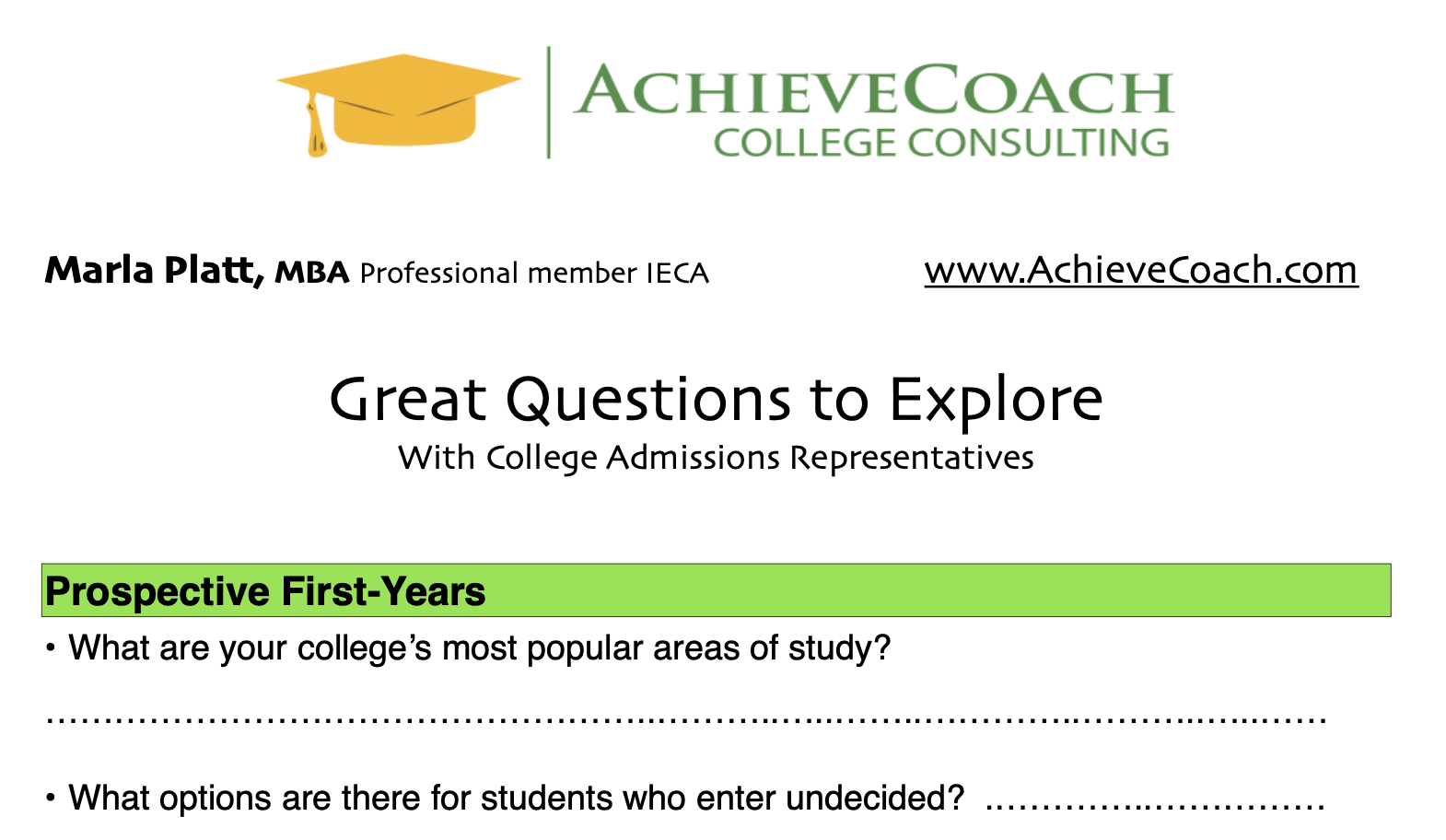Current Topics
A Guide for 9th and 10th Graders

Making the most of early high school years
For students currently in 9th and 10th grades, the start of high school might appear like a dress rehearsal for the junior and senior years and a time when the very notion of "college" feels like a faraway point on the horizon. But as distant as college applications may seem, beginning high school on the right foot sets the stage for what is to come well before a student even begins to seriously focus on their college process.
Developing good organization and study habits, engaging in interests outside of the classroom, connecting with teachers and learning where to find support when needed are important for building the foundation to a positive high school experience.
Academic skills and development of the whole person go hand in hand. Good
mentoring
is key as students set forth on their high school experience.
A checklist and a guide
- From the very first day of high school, grades matter! What students achieve in 9th and 10th grades count equally toward both the overall grade point average and class rank (at those schools that calculate class rank) as do grades earned later in high school. Support a solid GPA from the very first day of high school.
- Take the time to think about which subject areas appeal to your teen and how these connect to a student's natural strengths and curiosities.
- The same guidance applies as the topic of a "possible" college major arises. Consider a teen's individual strengths coupled with interests to guide a discussion on college pursuits.
- If possible, students in 10th grade should consider sitting for the PSAT or PreACT. While scores from these early tests are not directly pertinent to college applications, early exposure provides good practice for later standardized testing.
- It's worth spending some time online researching college admission requirements. Colleges vary in their application requirements and course recommendations, at times dependent on selected majors. For example, engineering aspirants are wise to pursue the highest math level they can manage. In other scenarios, foreign language recommendations may range from none to up to 4 years of the same language.
- Consider where non-academic interests lie. Is a student an athlete or into the world of sports? All about social justice and standing up for others' rights? Maybe they are creative and dream in bright colors or think in eloquent language.
- Encourage teens to try on new experiences. For example, there is always a demand for students to take part in clubs, fundraisers, events, etc. that could use their participation and fresh energy!
- Leaders are not built in a day. Ninth and 10th graders might keep an eye on the leadership positions they may want to later take on in clubs, teams or creative groups. Underclassmen will become juniors and seniors soon enough, so set the stage for stepping up.
- Maybe there is
mentorship available through scheduled conversations with generous adults willing to share their professional perspectives. Consider local organizations; professionals; coaches; other people you know.
- Begin a discussion of what kinds of college environments might best suit your student. For example, would they thrive in a smaller, liberal arts environment or enjoy the breadth of opportunities at a large university?
- Consider making initial, low-key visits to local colleges. A drive-by visit is a great way to get a view of what a college campus looks and feels like.
- Web-based resources are at your disposal! Most colleges have a dedicated YouTube channel to check out or even recorded information sessions that families can log into at any time.
- Students who are willing to find ways to get to know their teachers through extra help sessions, offering a hand to organize class materials can kick off conversations that could knock down barriers and build a more relaxed connection.
- By getting to know their school counselor early on, a student can seek advice about classes to pursue that connect to their interests and abilities.
- Help your student to learn the best way to manage stress early on. When there are pinch points, often during study or exam periods, figuring out how to positively deal with pressure is a skill that serves students throughout high school and into college and adulthood.
CREDIT: Image created by macrovector - www.freepik.com</a>
Marla Platt, M.B.A. is an independent college consultant based in Sudbury, MA through AchieveCoach College Consulting, providing expert and personalized guidance to students and families throughout the college planning, search and admissions process. Marla is a professional member of the Independent Educational Consultants Association and can be reached via www.achievecoach.com
Recent posts







